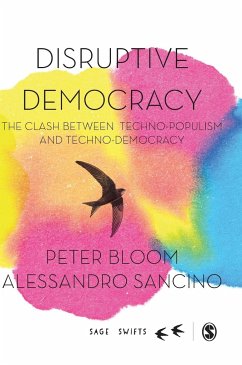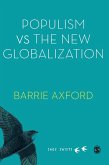Do new smart technologies such as AI, robotics, social media, and automation threaten to disrupt our society? Or does technological innovation hold the potential to transform our democracies and civic societies, creating ones that are more egalitarian and accountable?
Disruptive Democracy explores these questions and examines how technology has the power to reshape our civic participation, our economic and political governance, and our entire existence. In this innovative study, the authors use international examples such as Trump s America, and Bolsonaro s recent election as President of Brazil, to lead the discussion on perhaps the most profound political struggle of the 21st century, the coming clash between a progressive Techno-democracy and a regressive Techno-populism .
Disruptive Democracy explores these questions and examines how technology has the power to reshape our civic participation, our economic and political governance, and our entire existence. In this innovative study, the authors use international examples such as Trump s America, and Bolsonaro s recent election as President of Brazil, to lead the discussion on perhaps the most profound political struggle of the 21st century, the coming clash between a progressive Techno-democracy and a regressive Techno-populism .
At a time when technology is charged with undermining democracy and subverting electoral process, Bloom and Sancino offer a timely reminder in this exciting book that technologies are produced by humans. This leads them to explore who controls technology and to what ends, and to raise important questions concerning how we might establish democratic control over the production of technology to potentially create a better world.
Simon Teasdale, Professor of Public Policy and Organisations, Glasgow Caledonian University
Simon Teasdale, Professor of Public Policy and Organisations, Glasgow Caledonian University








